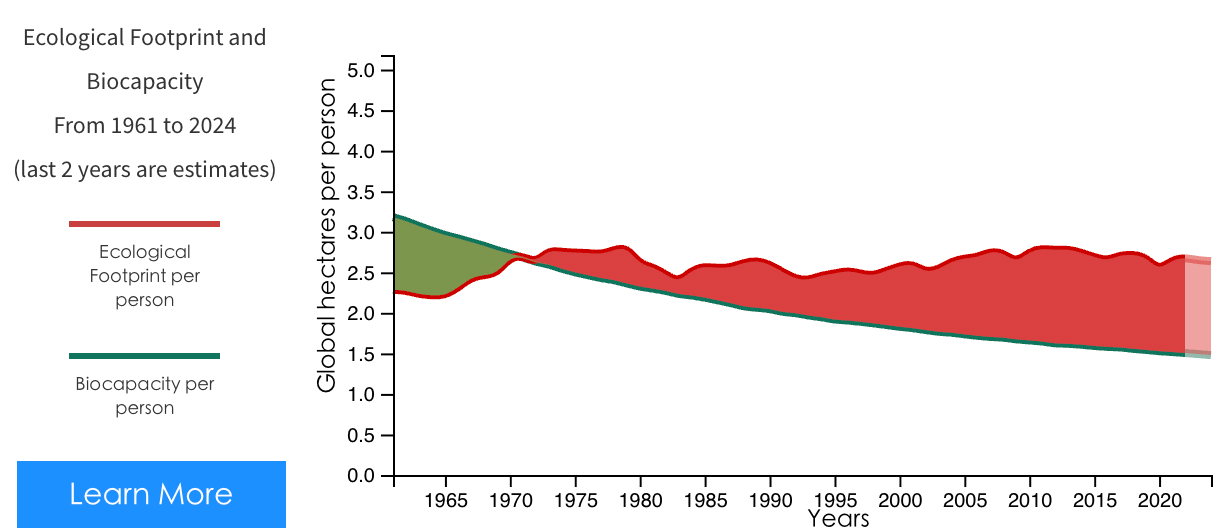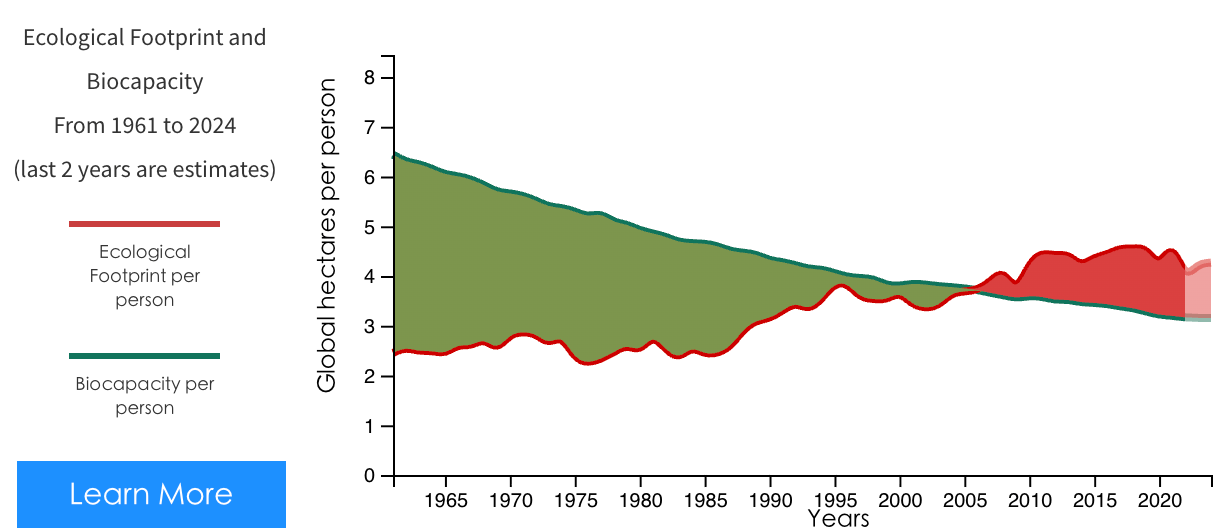True or false:
An ecological footprint is how many organisms a person eats every year.
False
If a country has an ecological deficit, it means that the people are using resources _________ than the land/sea can reproduce the resources.
faster
What is a commons?
A place or resource that everyone has access to.
Which country would have a larger biocapacity?
A. A country that is mostly desert with a few big cities.
B. A country that is mostly forest and undeveloped land.
B!
True or false:
If a country has a biocapacity that is higher than its ecological footprint, then it has an ecological deficit.
False
Provide 2 examples of "commons."
Multiple correct answers.
True or False:
The world's biocapacity is steadily increasing.
False.
Examine the picture! It shows the relationship between the ecological footprint and biocapacity for the world.

Right now, does the world have an ecological reserve or an ecological deficit?
An ecological deficit.
What is 1 of the 2 missing ideas from this definition?
A Tragedy of the Commons occurs when a resource is used too fast by selfish people.
1. The resource is free/accessible to everyone.
2. In the end, no one is able to use the resource anymore.
Does a person who rides the bus have a bigger or smaller ecological footprint than a person who drives the same distance alone in a car?
Smaller
Which is better to have - an ecological deficit or an ecological reserve? Why?
An ecological reserve, because it means that people are using resources slowly and they have extra leftover. (An ecological deficit means that people are using too much and are running out!)
____________ is a possible solution to a Tragedy of the Commons because when someone owns the "commons," the person will take care of it.
Privatization
Name one way you can reduce (decrease) your ecological footprint
Multiple correct responses
Examine the picture! It shows the relationship between the ecological footprint and biocapacity for the country of Chile.

Did Chile have an ecological deficit or ecological reserve in 1970? EXPLAIN your answer!
Chile had an ecological reserve, because its biocapacity was bigger than its ecological footprint. This means that the people used their resources more slowly than the resources were produced. (This is a good thing!)
Describe an example of a governmental regulation that would reduce deforestation (deforestation is humans cutting down trees in a forest).
Multiple answers can be correct (but not all answers are correct!)